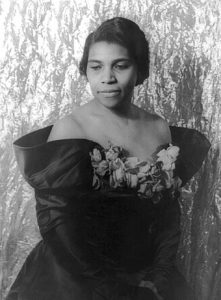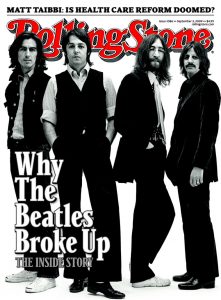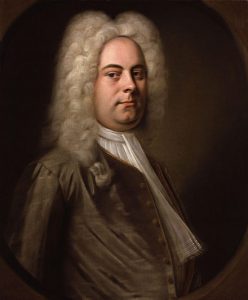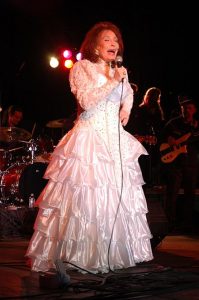![]() April 8 – 14 is an important week in music history. Whether you’re a fan of rock’n roll, pop, country, or classical something important happened years ago.
April 8 – 14 is an important week in music history. Whether you’re a fan of rock’n roll, pop, country, or classical something important happened years ago.
April 8, 1994–Kirk Cobain Found Dead
April 8, 1994, rock star Kurt Cobain was found dead in his home outside Seattle, Washington. Fresh injection marks pierced both arms. Additionally he suffered a fatal wound to the head from a 20-
gauge shotgun found between his knees. Cobain’s suicide brought an end to a life marked by far more suffering than is generally  associated with rock superstardom. But rock superstardom never did sit well with Kurt Cobain. Cobain was a social outsider who was reluctantly dubbed the spokesman of his generation.
associated with rock superstardom. But rock superstardom never did sit well with Kurt Cobain. Cobain was a social outsider who was reluctantly dubbed the spokesman of his generation.
Kurt Cobain rose to fame as the leader and chief songwriter of the Seattle-based band Nirvana. This band is often credited with turning a regional music scene in the Pacific Northwest into a worldwide phenomenon labeled “grunge.” Nirvana became enormously popular in the wake of their era-defining single “Smells Like Teen Spirit” (1991).
April 9, 1939–Marian Anderson sings on the steps of the Lincoln Memorial
“I have a dream that one day this nation will rise up and live out the true meaning of its creed: ‘We hold these truths to be self-evident, that all men are created equal.’” But Martin Luther King, Jr., was not the first to raise his voice from those steps with a message of hope for America’s future. That distinction belongs to the world-famous contralto Marian Anderson. Her performance at the Lincoln  Memorial on April 9, 1939, made a compelling case for the transformative power of music.
Memorial on April 9, 1939, made a compelling case for the transformative power of music.
Marian Anderson was an international superstar in the 1930s. Race had been no impediment to her career abroad. However, there were still places in the United States where a black woman was simply not welcome, no matter how famous. What surprised Anderson and many others was to discover in 1939 that one such place was Constitution Hall. This venue was owned and operated by the Daughters of the American Revolution. Once the D.A.R. refused to allow Marian Anderson to perform at Constitution Hall because of her skin color. As a result the organization lost one of its most influential members: First Lady Eleanor Roosevelt. Roosevelt and many other women quit the D.A.R. in protest of its discriminatory action, which soon became a cause célèbre.
April 10, 1970–Paul Mccartney Announces Breakup of The Beatles
By the spring of 1970, there was little more than a tangled set of business relationships keeping the Beatles together. Each of the  Beatles was pursuing his musical interests outside of the band. In addition there were no plans in place to record together as a group. But as far as the public knew, this was just a temporary state of affairs.
Beatles was pursuing his musical interests outside of the band. In addition there were no plans in place to record together as a group. But as far as the public knew, this was just a temporary state of affairs.
That all changed on April 10, 1970, with an ambiguous Paul McCartney “self-interview”. The statements Paul released to the press that day were about the upcoming release of his debut solo album, McCartney. However, they were interpreted as an official announcement of a Beatles breakup.
https://www.youtube.com/watch?v=OYNemP7A4Yg
April 11, 1961–Bob Dylan Plays His First Major Gig in New York City
The singular creative vision that would change the face of popular music wasn’t really in evidence yet. However, what Bob Dylan did  have was his guitar, harmonica, and unique stage presence. He also brought a vast library of American folk songs in his repertoire. On April 11, 1961, he got his first real chance to put those on display with his first major gig in New York City. At the age of 19 he was the opening act for bluesman John Lee Hooker at Gerde’s Folk City.
have was his guitar, harmonica, and unique stage presence. He also brought a vast library of American folk songs in his repertoire. On April 11, 1961, he got his first real chance to put those on display with his first major gig in New York City. At the age of 19 he was the opening act for bluesman John Lee Hooker at Gerde’s Folk City.
April 12, 1989–Garth Brooks Releases His Debut Album
His integration of rock and roll elements into the country genre has earned Garth Brooks immense popularity in the United States. Brooks has had great success on the country single and album  charts. His works include multi-platinum recordings and record-breaking live performances, while also crossing over into the mainstream pop arena.
charts. His works include multi-platinum recordings and record-breaking live performances, while also crossing over into the mainstream pop arena.
Garth Brooks is his debut studio album, released on April 12, 1989 through Capitol Nashville. It was both a critical and chart success, peaking at #13 on the Billboard 200 and at #2 on the Top Country Albums chart. The album has been certified diamond by the Recording Industry Association of America (RIAA) for shipments over ten million copies. This is Garth’s only album to have a neotraditional country sound before developing a more crossover-friendly country-pop sound.
April 13, 1742–Handel’s Messiah premieres in Dublin
Nowadays, the performance of George Friedrich Handel’s Messiah oratorio is a deeply entrenched Christmas tradition. It would surprise many, then, to learn that Messiah was not originally  intended as a piece of Christmas music. Messiah received its world premiere on this day in 1742, during the Christian season of Lent.
intended as a piece of Christmas music. Messiah received its world premiere on this day in 1742, during the Christian season of Lent.
Messiah gained widespread popularity only during the final years of Handel’s life, in the late 1750s. It remains one of the best-known musical works of the Baroque period more than two centuries later. Handel composed the score for Messiah in just 24 days, Ludwig van Beethoven said of Handel: “He is the greatest composer that ever lived. I would uncover my head and kneel before his tomb.”
April 14, 1935–Country legend Loretta Lynn is born in Butcher Hollow, Kentucky
If there’s one thing nearly everyone knows about country-music legend Loretta Lynn, it’s what her father, Ted Webb, did for a living. Like any man struggling to provide for a family during the Great Depression, he took work wherever he could find it. However, his primary job was in the mines of the Consolidation Coal Company in the rugged mountains of eastern Kentucky. Ted and his wife, Ramey,  raised eight children in their small wooden house in Johnson County. The most famous coal miner’s daughter in the world was born on this day in 1935.
raised eight children in their small wooden house in Johnson County. The most famous coal miner’s daughter in the world was born on this day in 1935.
As she sang in her autobiographical 1971 country hit, “Coal Miner’s Daughter,” Loretta Webb grew up dirt poor but well-loved and taken care of by her hardworking parents. She adored music and sang in church choirs as a child.
Loretta Lynn’s record sales and chart performance over the next two decades were enough to qualify her for genuine “legend” status. Her contribution to the genre went beyond mere popularity. She wrote much of her own material, most from a strong, feminine perspective, Lynn helped transform the role of women in country music.
Correction: in my last post I incorrectly said we performed Stairway to Heaven at South Street Christian Church in 1973. It was actually 1975.

Thank you for the insightful information about “This week in music history”.
I never get tired of listening to Handel’s Messiah! Thank you.